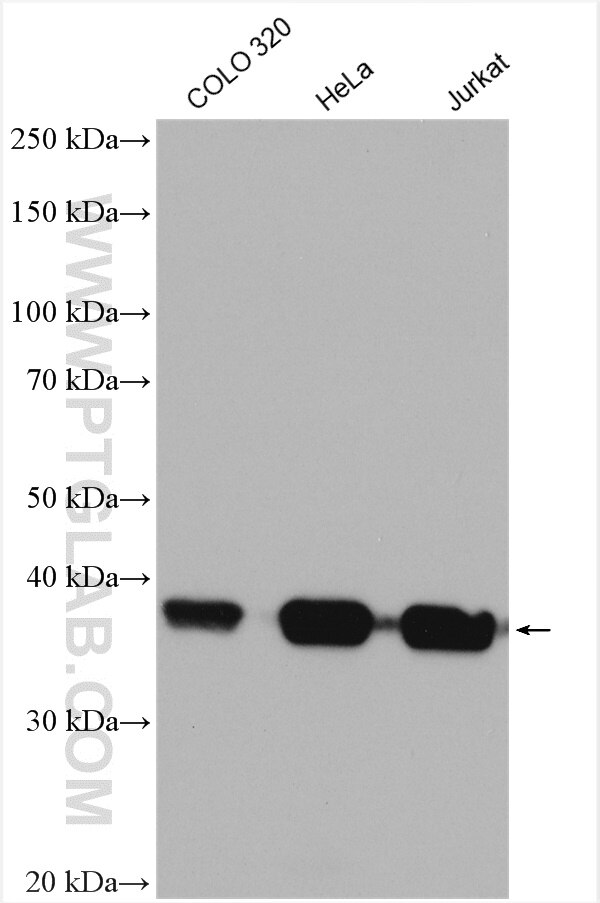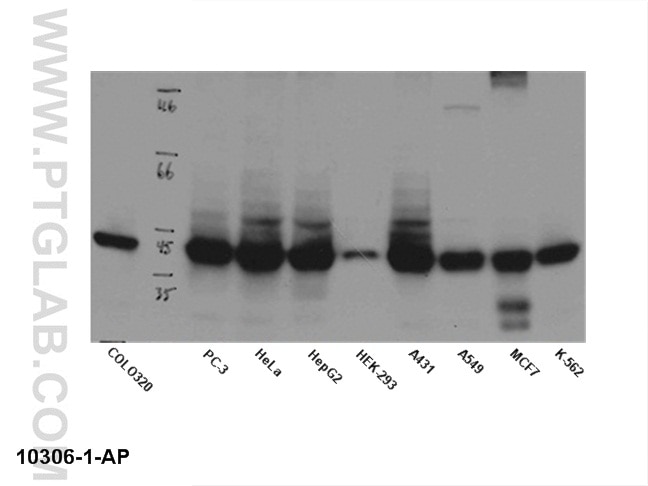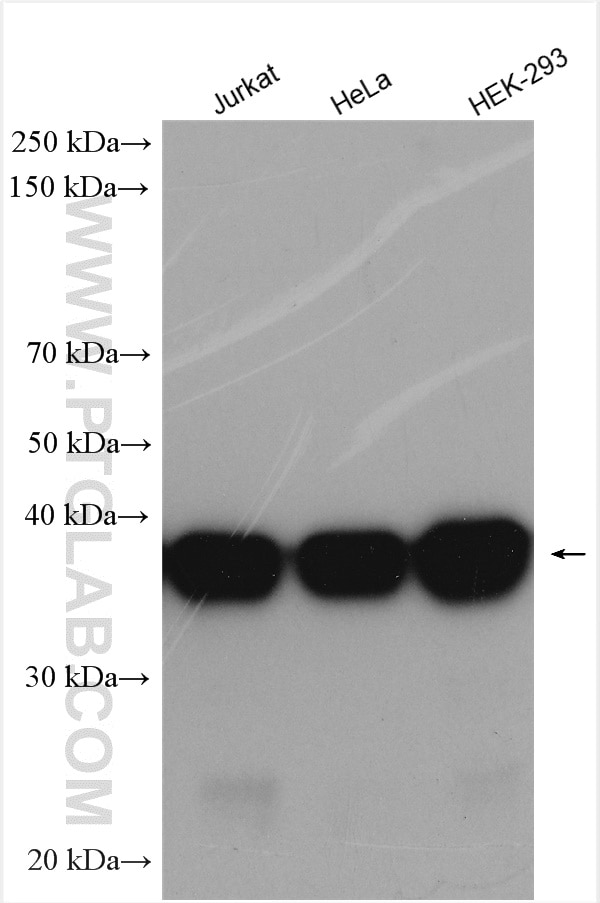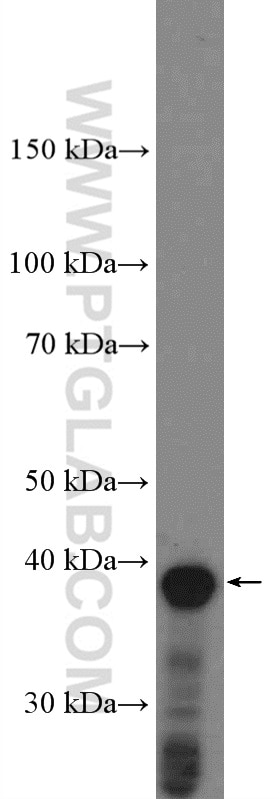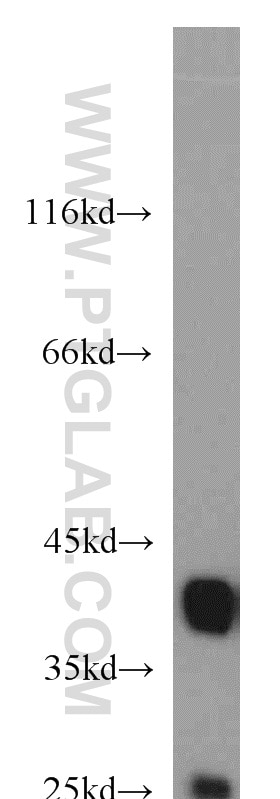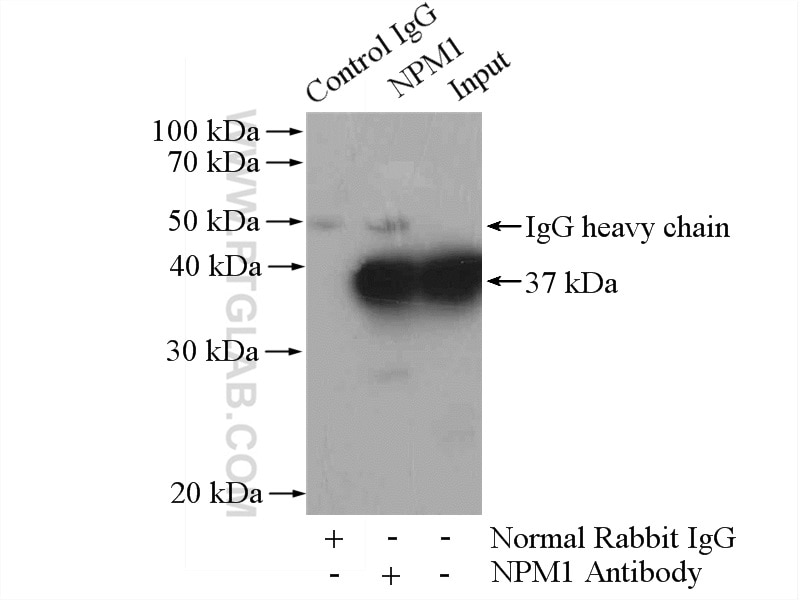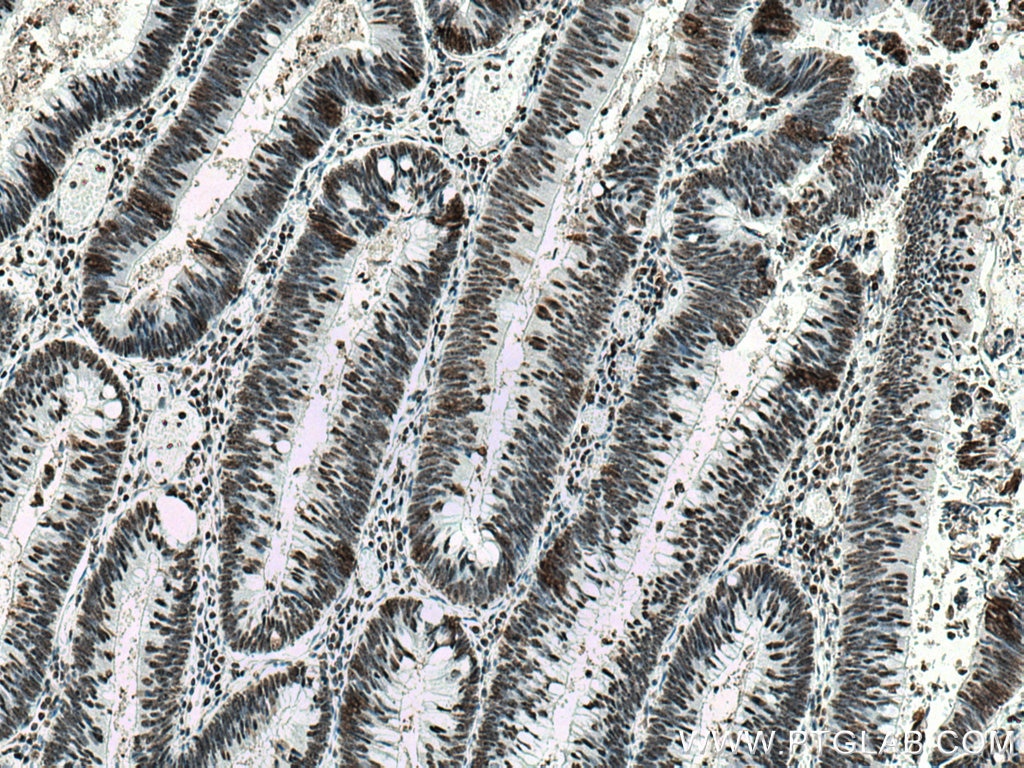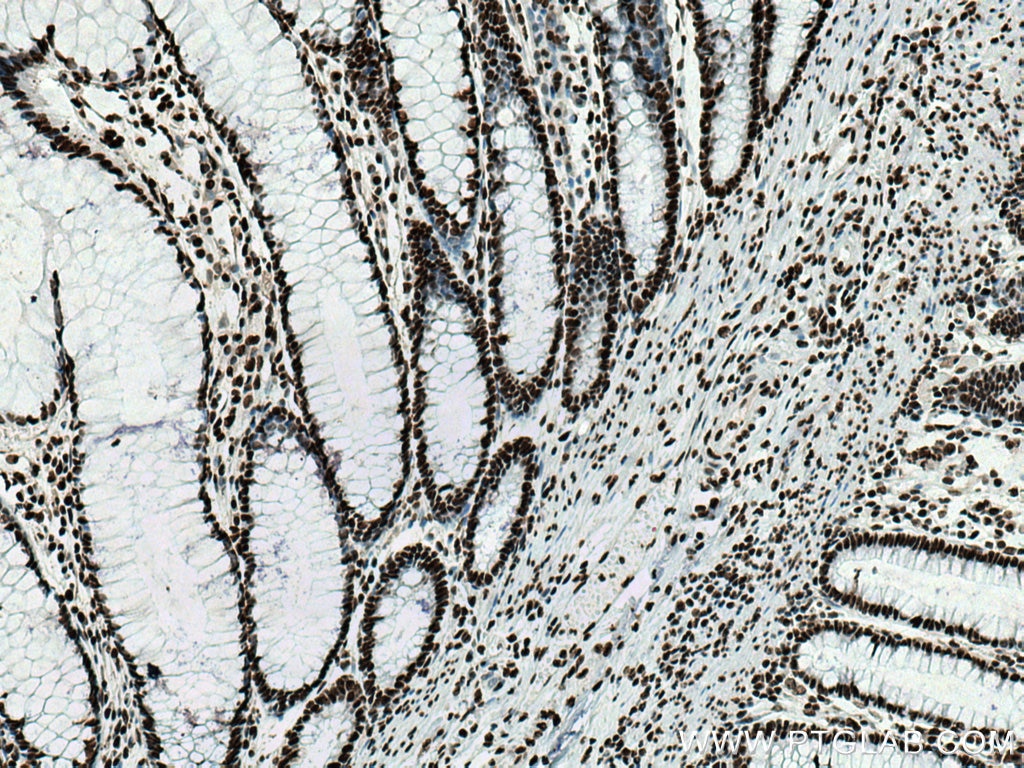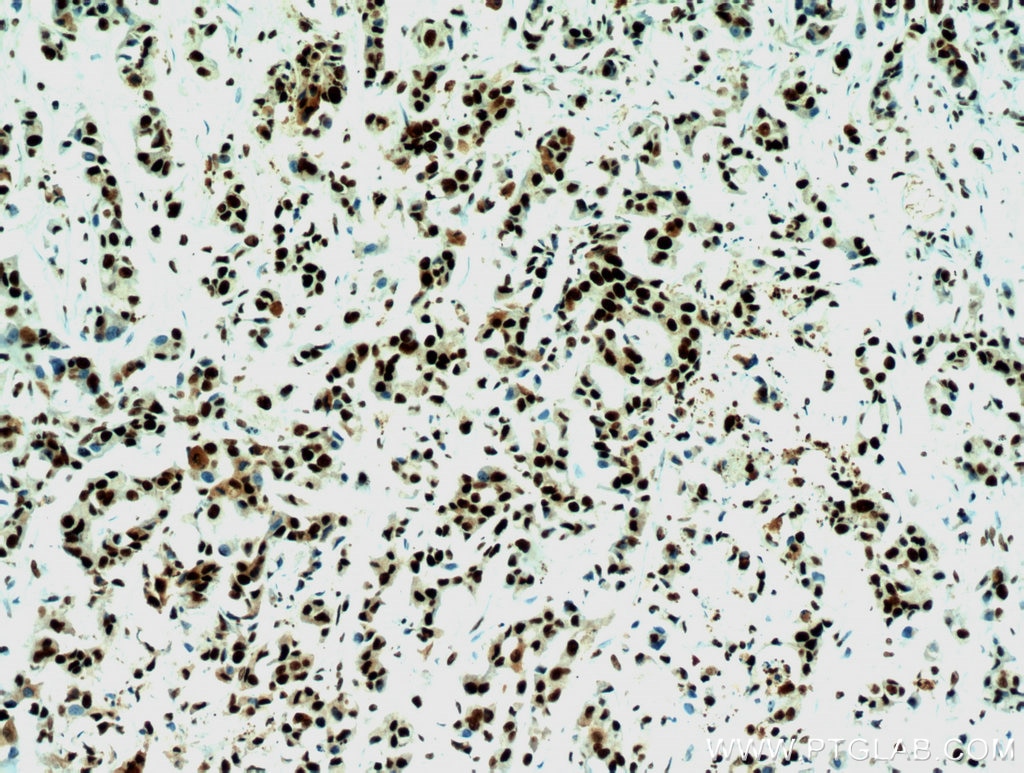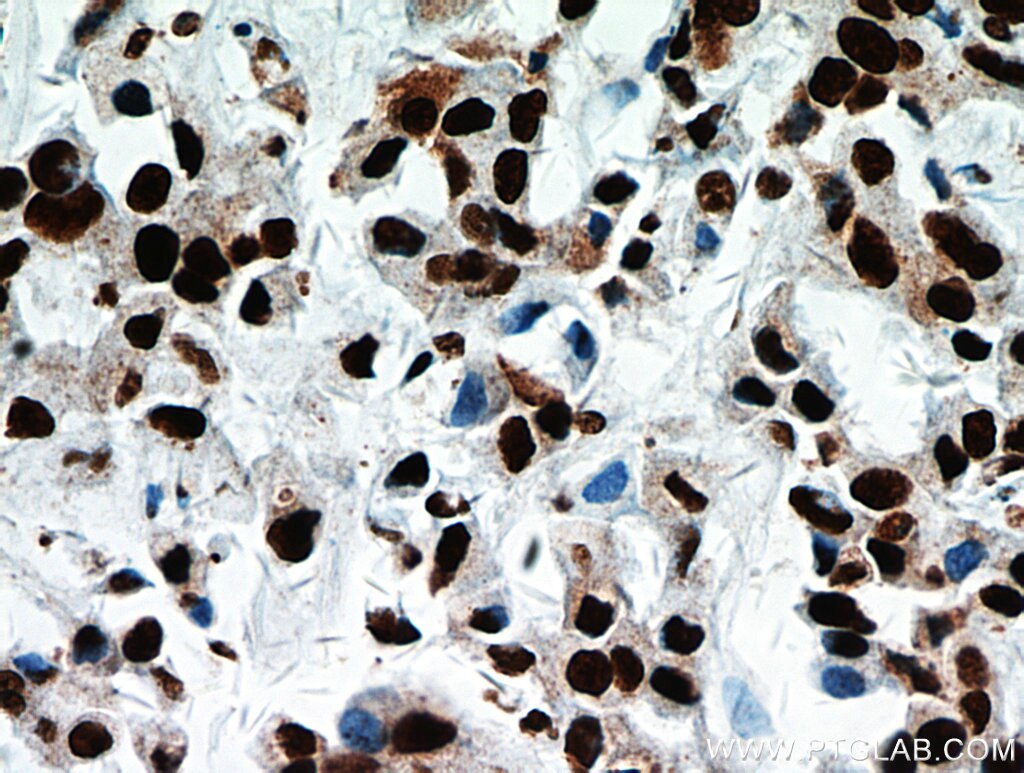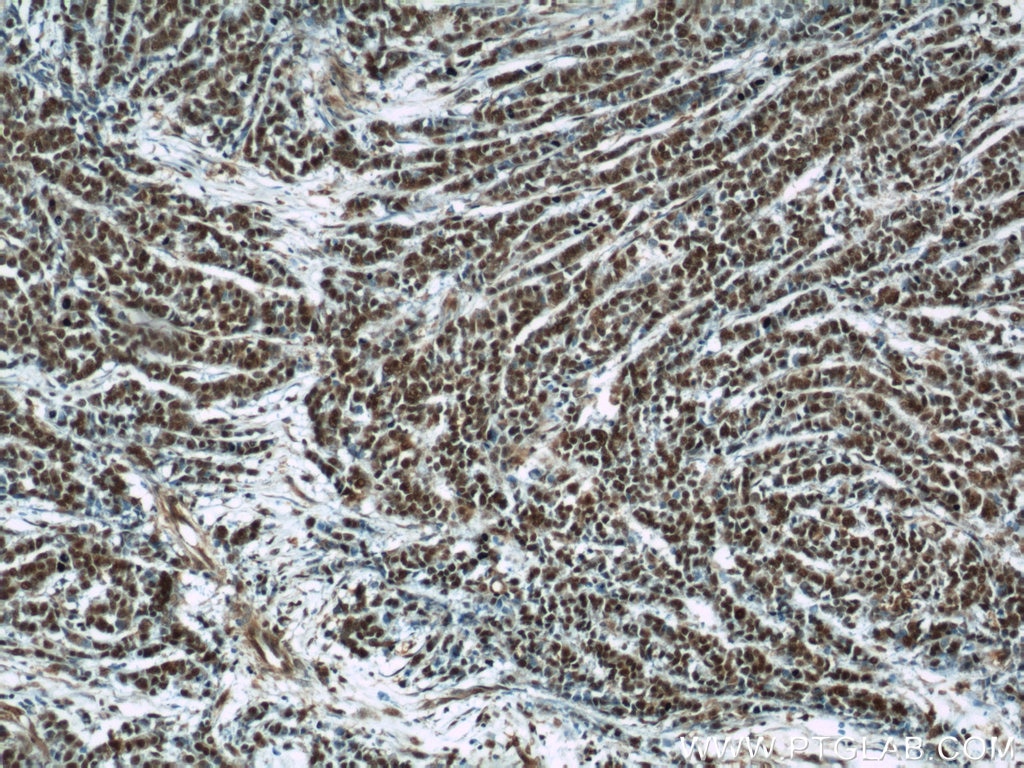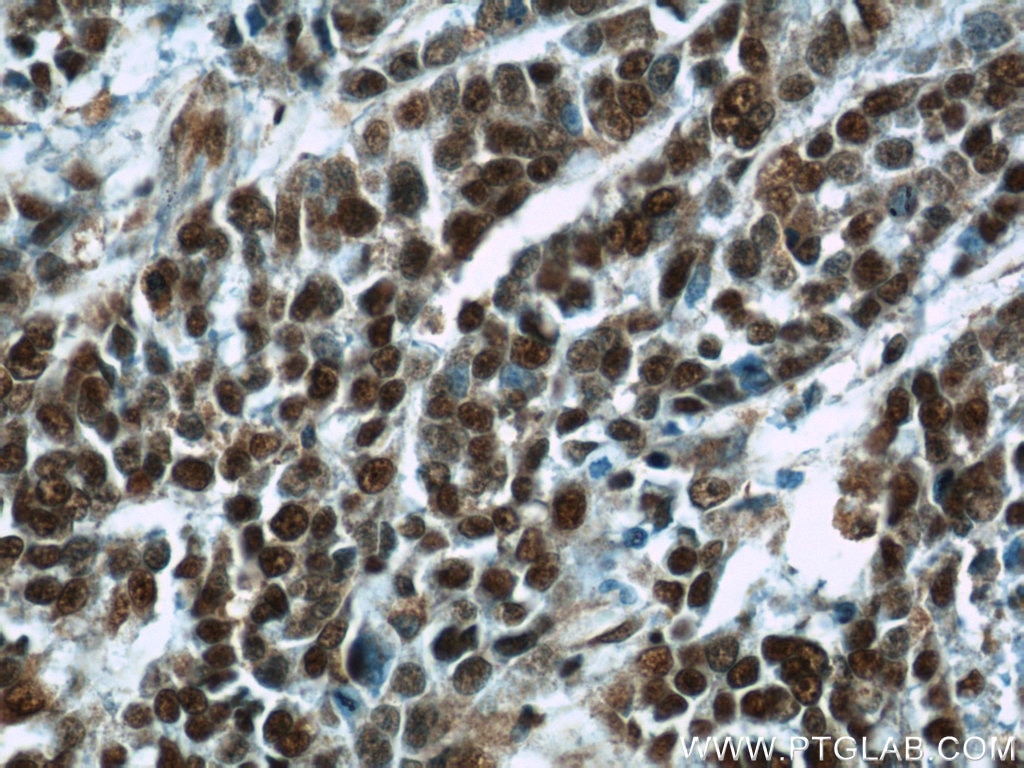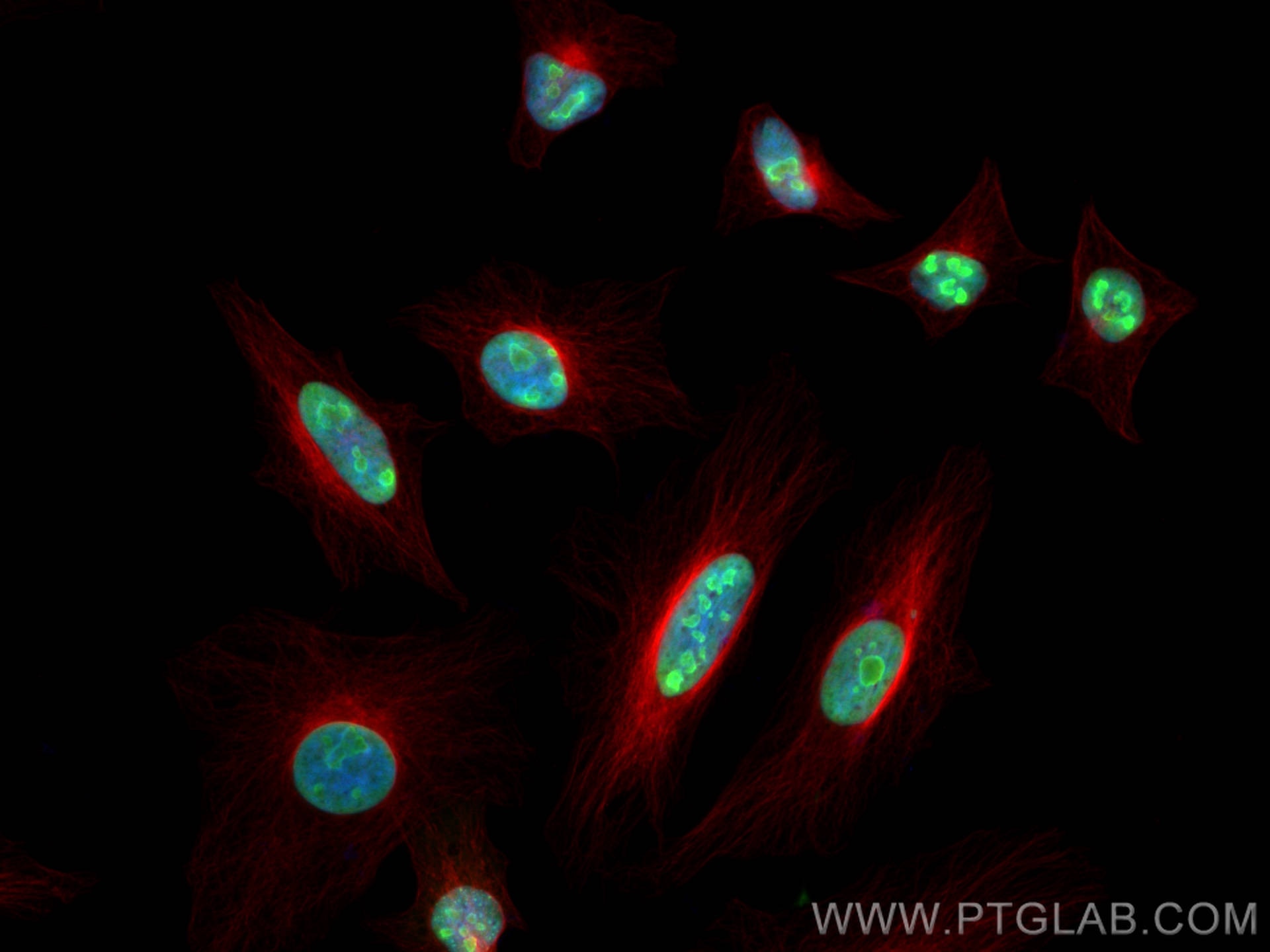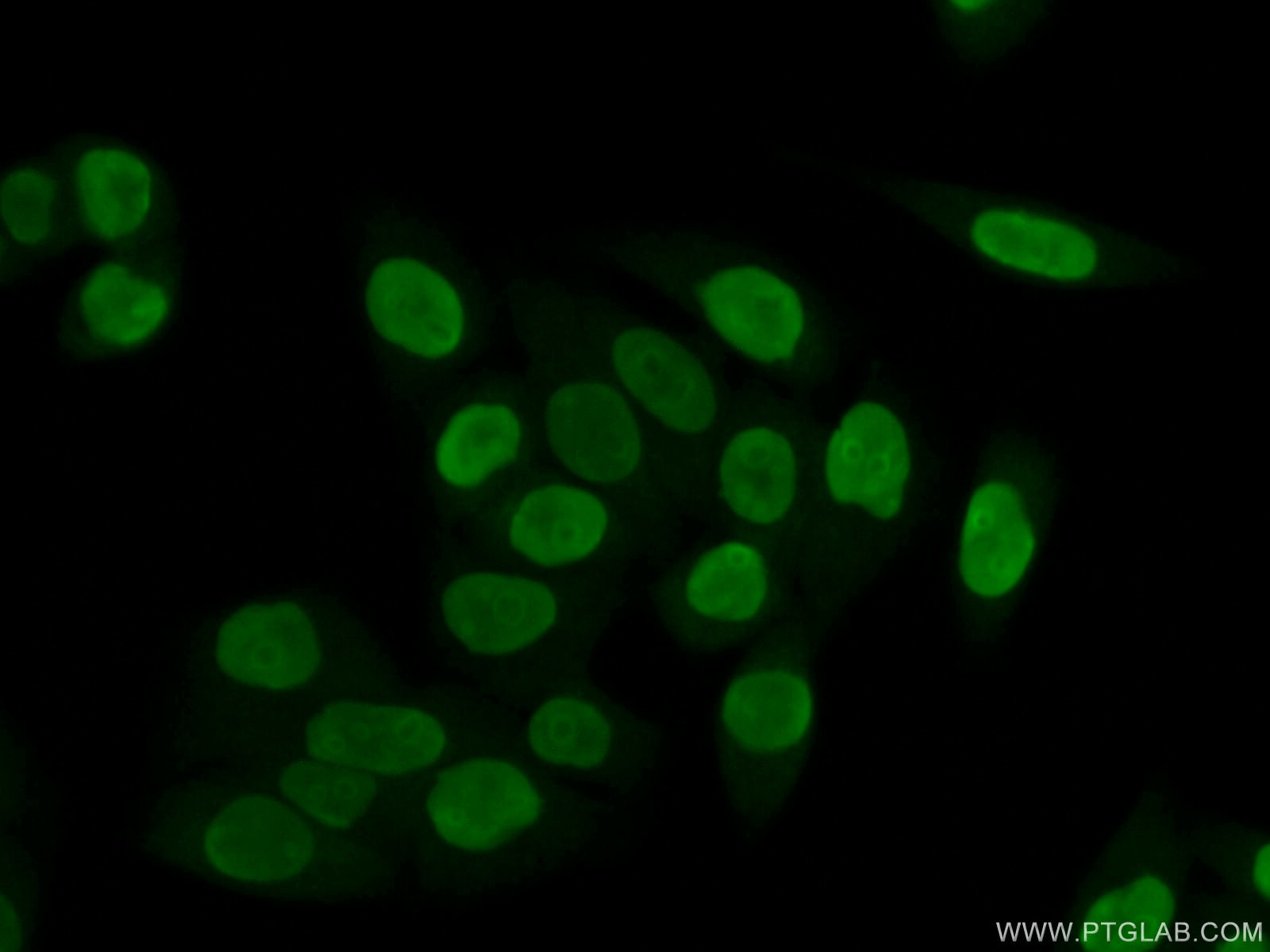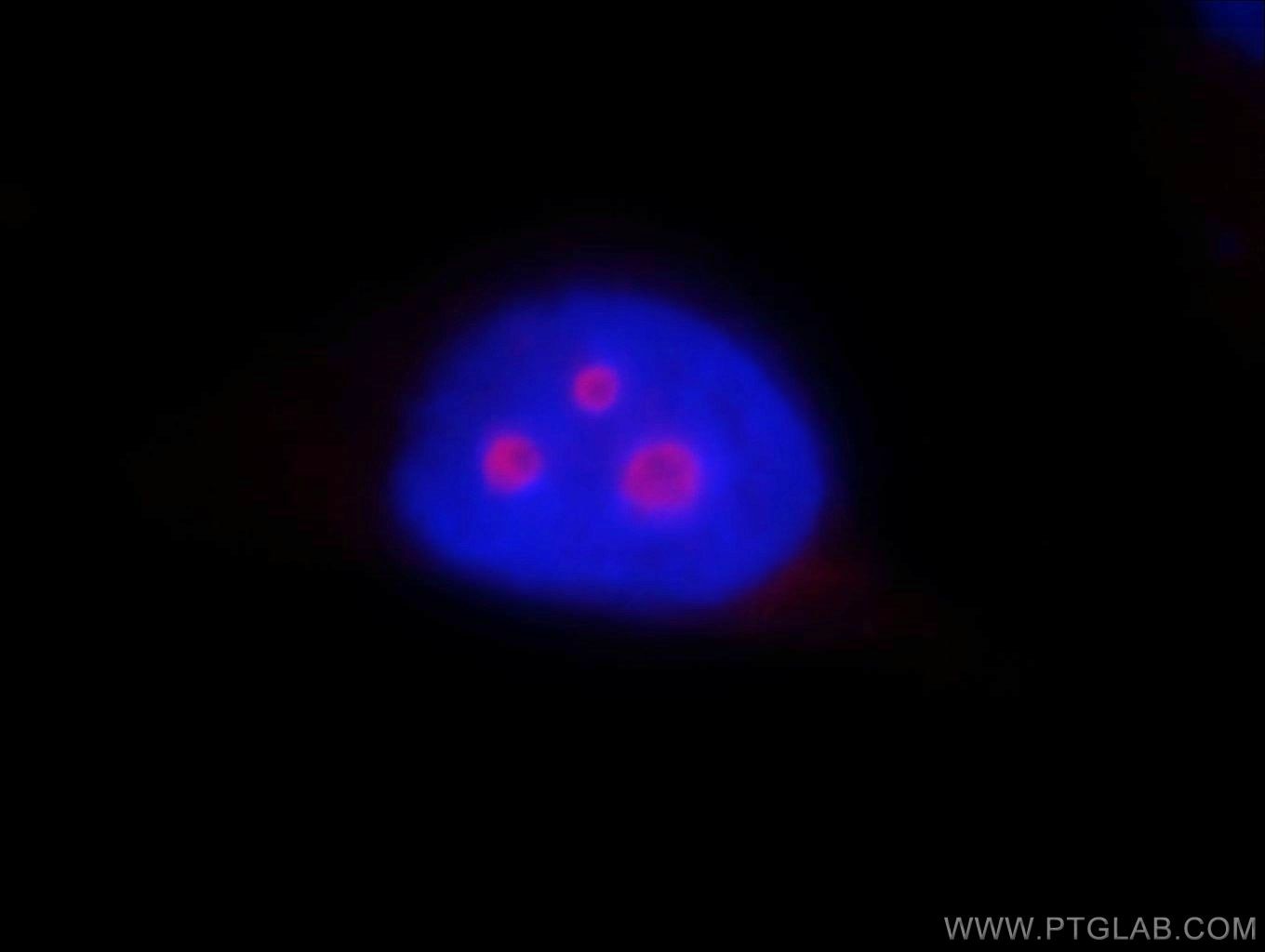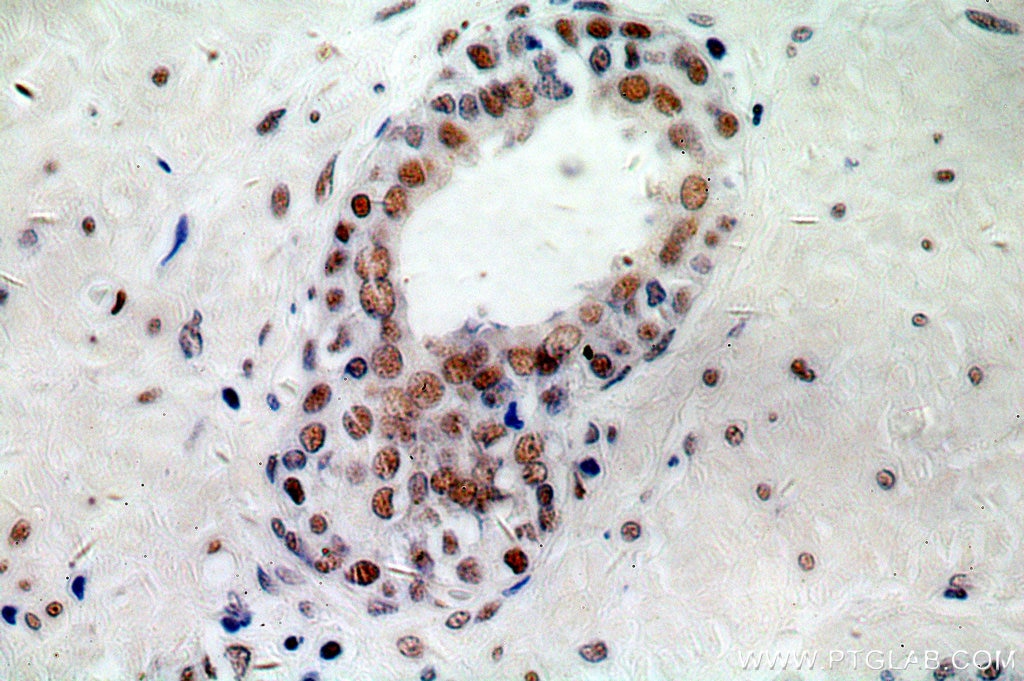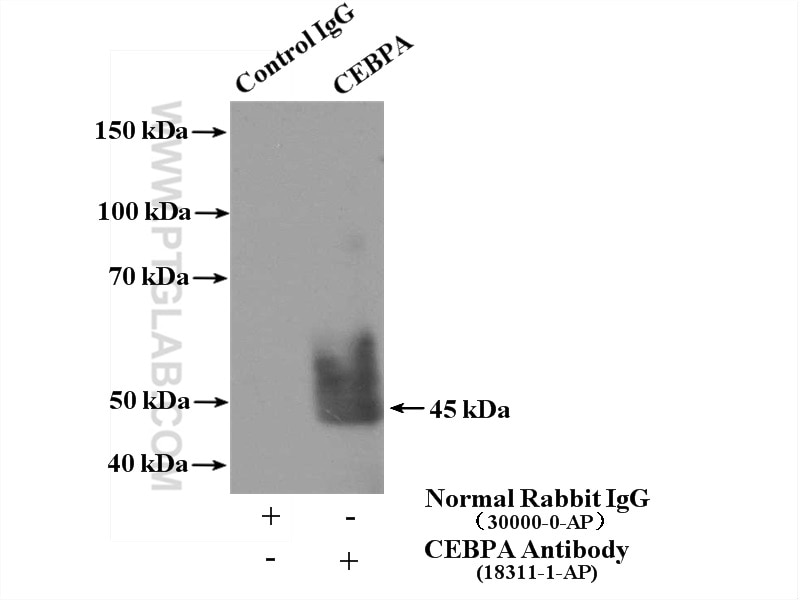- Phare
- Validé par KD/KO
Anticorps Polyclonal de lapin anti-B23/NPM1
B23/NPM1 Polyclonal Antibody for WB, IP, IF, IHC, ELISA
Hôte / Isotype
Lapin / IgG
Réactivité testée
Humain, rat et plus (2)
Applications
WB, IHC, IF/ICC, IP, CoIP, chIP, ELISA
Conjugaison
Non conjugué
N° de cat : 10306-1-AP
Synonymes
Galerie de données de validation
Applications testées
| Résultats positifs en WB | cellules COLO 320, cellules HEK-293, cellules HeLa, cellules Jurkat, cellules K-562, multi-cellules |
| Résultats positifs en IP | cellules Jurkat |
| Résultats positifs en IHC | tissu de cancer du côlon humain, tissu de cancer du sein humain il est suggéré de démasquer l'antigène avec un tampon de TE buffer pH 9.0; (*) À défaut, 'le démasquage de l'antigène peut être 'effectué avec un tampon citrate pH 6,0. |
| Résultats positifs en IF/ICC | cellules HeLa |
Dilution recommandée
| Application | Dilution |
|---|---|
| Western Blot (WB) | WB : 1:20000-1:100000 |
| Immunoprécipitation (IP) | IP : 0.5-4.0 ug for 1.0-3.0 mg of total protein lysate |
| Immunohistochimie (IHC) | IHC : 1:250-1:1000 |
| Immunofluorescence (IF)/ICC | IF/ICC : 1:50-1:500 |
| It is recommended that this reagent should be titrated in each testing system to obtain optimal results. | |
| Sample-dependent, check data in validation data gallery | |
Applications publiées
| KD/KO | See 3 publications below |
| WB | See 19 publications below |
| IHC | See 4 publications below |
| IF | See 14 publications below |
| IP | See 7 publications below |
| CoIP | See 1 publications below |
| ChIP | See 1 publications below |
Informations sur le produit
10306-1-AP cible B23/NPM1 dans les applications de WB, IHC, IF/ICC, IP, CoIP, chIP, ELISA et montre une réactivité avec des échantillons Humain, rat
| Réactivité | Humain, rat |
| Réactivité citée | rat, Humain, porc, souris |
| Hôte / Isotype | Lapin / IgG |
| Clonalité | Polyclonal |
| Type | Anticorps |
| Immunogène | B23/NPM1 Protéine recombinante Ag0286 |
| Nom complet | nucleophosmin (nucleolar phosphoprotein B23, numatrin) |
| Masse moléculaire calculée | 33 kDa |
| Poids moléculaire observé | 35-40 kDa |
| Numéro d’acquisition GenBank | BC002398 |
| Symbole du gène | NPM1 |
| Identification du gène (NCBI) | 4869 |
| Conjugaison | Non conjugué |
| Forme | Liquide |
| Méthode de purification | Purification par affinité contre l'antigène |
| Tampon de stockage | PBS avec azoture de sodium à 0,02 % et glycérol à 50 % pH 7,3 |
| Conditions de stockage | Stocker à -20°C. Stable pendant un an après l'expédition. L'aliquotage n'est pas nécessaire pour le stockage à -20oC Les 20ul contiennent 0,1% de BSA. |
Informations générales
Nucleophosmin (NPM1,B23) is a putative ribosome assembly factor with a high affinity for peptides containing nuclear localization signals (NLSs). The transport of proteins across the nuclear envelope is a selective, multistep process involving several cytoplasmic factors. Proteins must be recognized as import substrates, dock at the nuclear pore complex and translocate across the nuclear envelope in an ATP-dependent fashion. Several cytosolic and nuclear proteins that are central to this process have been identified. The 38 kDa nuclear protein nucleophosmin is involved in ribosomal assembly and rRNA transport. It is an abundant protein that is highly phosphorylated by Cdc2 kinase during mitosis.
Protocole
| Product Specific Protocols | |
|---|---|
| WB protocol for B23/NPM1 antibody 10306-1-AP | Download protocol |
| IHC protocol for B23/NPM1 antibody 10306-1-AP | Download protocol |
| IF protocol for B23/NPM1 antibody 10306-1-AP | Download protocol |
| IP protocol for B23/NPM1 antibody 10306-1-AP | Download protocol |
| Standard Protocols | |
|---|---|
| Click here to view our Standard Protocols |
Publications
| Species | Application | Title |
|---|---|---|
EMBO Mol Med Excess hydrogen sulfide and polysulfides production underlies a schizophrenia pathophysiology. | ||
Cancer Res LNMICC promotes nodal metastasis of cervical cancer by reprogramming fatty acid metabolism. | ||
Int J Mol Sci TRPV1 Activation Promotes β-arrestin2 Interaction with the Ribosomal Biogenesis Machinery in the Nucleolus:Implications for p53 Regulation and Neurite Outgrowth. | ||
Mol Ther Nucleic Acids RPL32 Promotes Lung Cancer Progression by Facilitating p53 Degradation. | ||
